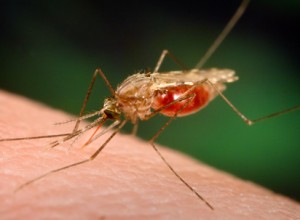NMIMR develops new Yellow Fever control tool
 The Noguchi Memorial Institute for Medical Research (NMIMR) says it has developed a Netted Ring, a simple tool to control the aedes aegypti mosquitoes that spreads yellow fever.
The Noguchi Memorial Institute for Medical Research (NMIMR) says it has developed a Netted Ring, a simple tool to control the aedes aegypti mosquitoes that spreads yellow fever.
The tool, which is expected to be rolled out in November this year, is part of the Institute’s new initiative to completely eradicate yellow fever infections in Ghana.
Professor Abraham Kwabena Anang, Director of the Institute who said this in Accra on Wednesday noted that presently, they are seeking funds to produce more of the tools to be distributed in communities after it has been launched.
“This tool is like a shower cup that is mostly used by women to protect their hairs from getting wet, it is done in an elastic way, which can easily be opened up to cover water drums used for domestic activities to protect the community” he said.
He was speaking at a Yellow Fever symposium organized by the NMIMR as part of its 40th anniversary celebrations and its quest to mobilize effective partnerships to support the global yellow fever elimination strategy.
It was attended by various actors of yellow fever control officers from the Institutes, the Ghana Health Service (GHS) and the World Health Organization (WHO).
Prof. Anang said the NMIMR would as part of activities to mark the death of the founder of the Institute, who died from yellow fever, focus on researching new tools for the diagnosis of the disease this year.
He observed that the yellow fever vaccination at child birth had helped to reduce the disease burden in Ghana, noting that, there were lots of works ongoing to reduce the vector population through the use of residual insecticide spraying.
“Today, yellow fever is not a big disease problem that is scaring anybody, but we must not relent on our efforts, if we relax, we may have a big epidemic,” he said.
The Institute, according to him, intends to align more closely with the WHO and the national efforts to eliminate yellow fever for improved results.
Dr Franklin Asiedu-Bekoe, Head of Disease Surveillance at the GHS said it was estimated that 200,000 case infections of yellow fever with 30,000 deaths occur annually worldwide.
He entreated the public to participate in yellow fever vaccination saying “mass prevention vaccination campaign had rapidly increased population immunity and protected susceptible older groups in selected high-risk areas like in the Northern belt”.
Dr Asiedu-Bekoe, said there was classification of causes related to yellow fever, which are the suspected, probable and confirmed case classification.
The suspected case is characterized by acute onset of fever followed by jaundice within two weeks of onset of the first symptoms and the probable is a suspected case that has tested positive for yellow fever or epidemiologically linked to a confirmed case.
Yellow fever is an acute viral hemorrhagic disease transmitted by infected mosquitoes biting humans, it is spread by a species of mosquito common to areas of Africa and South America, vaccination is recommended before travelling to certain areas.
Mild cases of yellow fever cause fever, headache, nausea and vomiting, serious cases may cause fatal heart, liver and kidney conditions.
No specific treatment for the disease exists; present efforts are focused on managing symptoms and limiting complications.
Source: GNA
